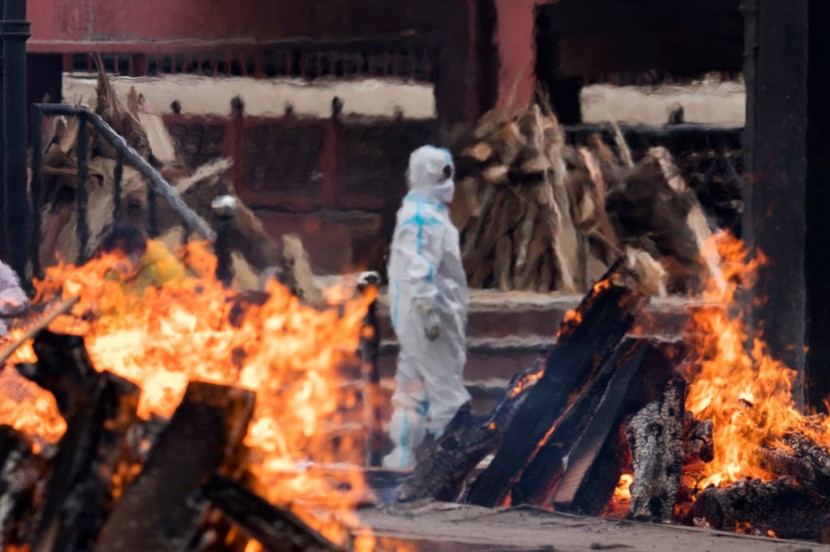
India's COVID-19 crisis is worsening. The COVID-19 crisis struck India hard at first, as the world's second-most populated nation with a weak health system. In September, however, infections started to decline, perplexing epidemiologists and healthcare workers. It was apparent in February that the virus's grasp on hospitals was loosening.
India's COVID-19 crisis blamed on variants
Thousands of people have died due to the pandemic's current surge, which has wreaked havoc on healthcare systems. The country's official death toll passed 200,000 on Wednesday. And Indian officials set a new global high by reporting 362,757 infections in 24 hours, taking the total number of cases to more than 17.9 million.
Some scientists believe that earlier infections occurred mainly in poorer communities and that richer individuals, who have begun to socialize again, are now being affected more often. Prime Minister Narendra Modi lifted a slew of restrictions this summer.
Modi also refused to cancel a significant religious festival that attracted hundreds of thousands of Hindu pilgrims from across the country, dubbed a "super-spreader event." Experts believed that religious, social, and political events played a role in the second wave's rapid dissemination. But they also note that the virus' spread coincided with the arrival of new variants, Global News via MSN reported.
Antiseptic Throat Spray, Malaria Drug Cut COVID-19 Infection Risk, According to Researchers
The B.1.1.7 variant, which was first discovered in the United Kingdom, is one of them. This strain is much more transmissible, potentially increasing the likelihood of death. Some reports say it could be best placed to evade immune systems, raising the possibility of reinfection in people who have either been vaccinated or infected with the virus.
Most people only had minor symptoms due to the infections, but it only led to their concerns that the virus that caused India's disastrous second wave was different. They wonder whether a more infectious strain that bypasses the immune system is sparking the disease in the world's worst-affected nation.
The data is inconclusive so far, and experts warn that other causes may be to blame for the outbreak's ferocity, which has engulfed India's capital so rapidly that hospitals are completely overburdened and crematoria are blazing nonstop. Nonetheless, the inclusion of the variant could make taming India's COVID-19 crisis more difficult, as per the NY Times.
India's Coronavirus Deaths More Than 200,000 During Surge
India's COVID-19 causes global crisis as vaccine supplies disrupted
The COVID-19 crisis in India has thrown the global vaccine supply chain into disarray, which was already under severe strain. India is the world's largest producer of COVID-19 vaccines. In addition, in 2021, the Serum Institute of India was slated to manufacture a third of the global availability of the AstraZeneca vaccine, ABC News reported.
As India's healthcare system struggles to cope with the second wave of infections, the government has primarily suspended vaccine shipments, preferring to keep stocks onshore to inoculate the country's people. India's ability to manufacture adequate vaccines was already being affected by the activities of wealthy countries before the current crisis.
The United States restricted the sale of raw materials for vaccine manufacture in February, under then-President Donald Trump. Adar Poonawalla, the CEO and director of the Serum Institute of India, appealed to U.S. President Joe Biden earlier this month to lift the export restrictions.
Intellectual property laws imposed by wealthy countries often restrict India's ability to manufacture more vaccines, preventing the vaccine-manufacturing superpower from developing vaccines other than AstraZeneca. In October of last year, India and South Africa petitioned the World Trade Organization (WTO) to waive laws authorizing pharmaceutical firms to keep their intellectual property to themselves.
They needed vaccine makers worldwide to have access to the COVID-19 vaccine technologies and know-how so that the development of the critical drugs could scale up. However, rich countries, such as Australia, have so far obstructed attempts to loosen the Trade-Related Aspects of Intellectual Property Rights (TRIPS) laws. Sixty former heads of state and 100 Nobel Prize winners have signed a letter supporting Biden's waiver.
Countries Help India Amid Devastating COVID-19 Disaster, Here's How You Can Help Too
© 2025 HNGN, All rights reserved. Do not reproduce without permission.








